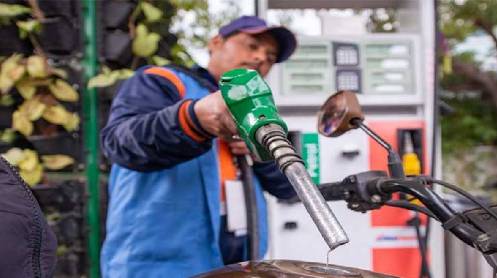As Eidul Fitr approaches, petrol prices in Pakistan are anticipated to increase by approximately Rs10-11 per litre on March 31, primarily due to higher import premiums and global market prices. Conversely, the price of high-speed diesel (HSD) is expected to decrease by up to Rs2 per litre during the same period.
The current ex-depot price of petrol stands at around Rs280 per litre, and with the upcoming review, it could surpass Rs290 per litre. This price surge is attributed to a $4 per barrel increase in the import price of petrol, along with a rise in its import premium to $13.5 per barrel from $12.15 per barrel previously, influenced by geopolitical factors.
In contrast, the international market witnessed a decline in the price of HSD, leading to an unchanged import premium of $6.50 per barrel for Pakistan State Oil (PSO). Consequently, the rate of high-speed diesel is expected to decrease by Rs1.30 to Rs2.50 per litre, subject to final exchange rate adjustments.
In the recent fortnightly review, the government maintained the petrol price at Rs279.75 per litre while reducing HSD’s rate by Rs1.77 per litre to Rs285.56. It’s important to note that both petrol and HSD are subject to a petroleum development levy (PDL) of Rs60 per litre, as per legal limits, contributing significantly to government revenue.
These fluctuations in fuel prices have a direct impact on inflation, especially concerning petrol’s usage in private transport, small vehicles, and two-wheelers, affecting middle and lower-middle-class budgets. Similarly, HSD’s price changes are highly influential, given its use in heavy transport vehicles, agricultural engines, and its indirect impact on food prices.
The government’s tax structure includes a Rs82 per litre tax on both petrol and HSD, with additional levies on specific fuel components and customs duties. Despite these adjustments, there is currently no general sales tax (GST) on petroleum products, highlighting the significance of petrol and diesel as major revenue sources for the government.
Story by Khaleeq Kiani





